There's an old saying that "brewers create wort, but yeast creates beer", which highlights the significance and importance of yeast in the beer creation process. Debate has long been raging amongst brewers, but particularly with homebrewers, on the topic of dried yeast vs liquid yeast in relation to which one gives better results for making beer. We've used dried yeast in all of the beers we've made, and there are several reasons for this. Firstly, dried yeast is significantly cheaper than the liquid version. It's more resilient, readily available, easier to store, and we've made some seriously good beers using it - some just as good as other craft beers we've had that have been made commercially.
Since we're in Australia - historically our only option for liquid yeast has been varieties imported from overseas, usually from the USA with brands like Whitelabs occasionally popping up in homebrew stores, but often in limited supply and varieties. Using imported liquid yeast from overseas is in our mind somewhat risky though. The sheer distance it needs to travel, and the logistics involved in transit, clearing customs, and making it's way through holding warehouses and distributors before finally landing in homebrew shop fridges means the risk of a reduction in quality is somewhat high. Given the relative volatility of yeast in liquid form, and the premium price tag, we just haven't seen a compelling reason to use it.
There's a new local player in town though, with Bluestone Yeast Co starting up and offering breweries and homebrewers alike, access to locally produced, high quality liquid yeast. Since it's made in Melbourne, Australia, all the risks we previously mentioned from imported liquid yeast don't apply, since it can be shipped to nearly all major cities within Australia overnight. We're all for supporting Australian business, so we're going down the proverbial rabbit hole on liquid yeast to see what we can find.
First things first. Who are Bluestone Yeast Co? Bluestone was founded by the Lacey brothers - Derek and Damien. Derek has a science background and is an avid homebrewer himself. Damien is a mechanical engineer and together they started Bluestone Yeast Co back in 2018 after identifying a large gap in the local Australia brewing market - that there were no decent local yeast manufacturers. Due to the explosion of the craft beer scene in Australia in recent years, there's finally a large enough local industry, and therefore demand from local breweries to support local yeast production.
In an episode of Between Two Urns, Daniel from Keg King interviewed Derek from Bluestone yeast. They discussed a number of different topics, from Derek's background in medical research, to the founding of Bluestone yeast as well as trends in the industry and some tips on how to get the most out of your homebrew (like oxygenating your wort and having good temperature control). Derek mentions a number of prominent craft breweries in Australia who are already customers of theirs (currently around 80 in total) and are using their yeast products. Such breweries include Mountain Culture Beer Co, Deeds Brewing. Kaiju, and Ocean Reach.
Bluestone cite enhanced esters, higher flocculation, and higher viability after fermentation - ie. better yeast harvesting and re-use when comparing their liquid yeast varieties to dry yeast. They've got a pretty decent range of yeasts too, as you can see from the image below (click the image to enlarge);
 |
| Bluestone Yeast Co - Yeast Varieties Image Copyright of Bluestone Yeast Co |
Let's break down some of the yeast varieties to take a look at what they are, and what commercially available yeast strains we believe they are similar to.
Lager Yeasts
Pilsen - BSY-L005
"This strain combines good flocculation characteristics with low sulfur and low diacetyl. Clean fermentations produce amazing bock, helles, pilsner, dunkles, and just about any other lager style you throw its way."
We'd liken this one to Mangrove Jacks M84 Bohemian Lager Yeast or Lallemand's Diamond Lager Yeast, for creating classic, clean, neutral flavoured lager styles.
Stuttgart - BSY-006
"This strain is for fermenting your "Crisp Lager" beer. Stuttgart can produce clean pseudo lagers at ale termperatures but is also willing to work as a traditional lager strain down to the low teens."
This variety sounds like Mangrove Jacks M54 Californian Lager Yeast, or Fermentis W-34/70 given the ability to ferment warmer than traditional lager yeasts typically do without the associated off flavours. Perfect for creating styles like Cold IPA's or India Pale Lagers.
American Ale Strains
San Diego - BSY-A010
"Clean character performs well at standard ale temps but for exceptionally crisp ales you can brew between 14-16C. However for crystal clear beers filtration or fining is required."
Since San Diego is on the West Coast of the USA, we're taking this to be a West Coast style ale yeast. The neutral flavour properties sound similar to Fermentis SafAle US-05, Morgan's American Ale Yeast, Lallemand's Lalbrew BRY-97 or Mangrove Jack's M44 US West Coast Yeast. Ideal for those clean and balanced pale ales.
New England - BSY-A011
"Juicy. Fruity. New England is an amazing strain for East Coast IPAs. The ester profile of New England brings out the aromas and flavours of the modern hop varieties and creates a beer that is greater than the sum of its parts. This dynamic strain likes to move to the top of the fermentation and will climb out the fermenter if too full."
The description pretty well gave this one away, being an East Coast style ale yeast. It's medium flocculation properties and the New England style suggest it will make for hazy, heavily hopped beer styles which are all the rage at the moment. Similar varieties or substitutes would include Mangrove Jack's M66 Hophead Ale Yeast, Lallemand's New England American East Coast Ale Yeast or even Lallemand's Verdant IPA strain.
Michigan - BSY-A012
"Michigan will shape a strong IPA, producing stone fruit esters that work great when paired with citrus hops. Michigan will give you what you need for an exceptionally balanced IPA."
Perhaps similar to Mangrove Jack's M36 Liberty Bell Yeast, but not entirely sure what other current yeasts may be similar. The packaging colours are also a subtle nod to the Michigan Wolverines football team too.
Detroit - BSY-A013
"This strain is a fast mover and can be used at the low end of the ale fermentation spectrum to keep it clean. Detroit is a great choice for big, high alcohol, malty beers but has no issues motoring through a hoppy double IPA."
The description of this one sounds similar to Mangrove Jack's M42 New World Strong Ale Yeast. Supposing the "Detroit" name to be a reference to the American "Motor City" - perhaps closely related to the above Michigan strain (since Detroit city is in Michigan State).
Boston - BSY-A015
"Very clean, crisp flavour characteristics with low fruitness and mild ester production. A very versatile yeast for styles that desire dominant malt and hop character. Use this strain to build a wonderful "House" ale. Mild citrus notes develop with cooler 15-19C fermentations. Normally requires filtration for bright beers."
Another neutral sounding yeast style, it's properties sound similar to SafAle US-05, but nothing that seems to set this one apart from some of the other American strains.
Portland - BSY-A037
"A solid all-around ale strain that is perfect for hop-forward beers. It is the go-to yeast for Brut IPAs. It ferments clean with an emphasis on hop flavour and aroma. Well-balanced, this yeast strain can be used to construct a wide range of ales."
The promotion of hop flavours sounds similar to Fermentis SafeAle S-33.
Belgian Ale Strains
Wallonia - BSY-A002
"Wallonia is named after the French speaking part of Belgium where the saison style first originated. Wallonia is a great yeast for saison, farmhouse ale and Belgian styles giving high ester levels and juicy aromas that complement complex malts."
Obviously a saison yeast strain, similar yeasts include Mangrove Jack's M29 French Saison yeast, or Lallemand Belle Saison, or Fermentis SafAle BE-134.
Ghent - BSY-A004
"Want a Belgian in a hurry? Get on the Ghent yeast train. This yeast produces good phenolic character that matches well with hops and caramel/toffee flavours. Extremely floculent producing clear beer quickly."
A classic Belgian yeast variety, it sounds similar to Mangrove Jack's M41 Belgian Ale Yeast or Fermentis SafAle T-58.
Brussels - BSY-A005
"This is a phenomenal wort attenuator producing a very dry, crisp beer with nice citrus aromas. Requires filtration for bright beers."
Perhaps similar to Lallemand's Lalbrew Abbaye dry yeast or Mangrove Jack's M47 Belgian Abbey Yeast or Fermentis SafAle BE-256.
English Ale Strains
Shoreditch - BSY-A014
"Shoreditch is a rich mineral profile that is bold and crisp with some fruitiness. Often used for higher gravity ales and when a high level of attenuation is desired."
Lallemand's Nottingham yeast is a similar, being a highly attenuating dry yeast variety.
London - BSY-029
Lallemand's Windsor yeast has similar properties or Fermentis SafAle S-04. Classic british ale strains to provide that nice, soft, rounded balance, with perhaps a little bit of residual sweetness from not attenuating as high as other strains.
German Ale Strains
Munich - BSY-A007
"Munich is the traditional German strain used to build world class weizen beers where big banana aroma is required. Balanced with mild clove, this strain will produce amazing beers. Munich will create a slightly higher level of acidity to give your beer a very crisp finish. Slightly underpitching will help increase the banana character."
Lallemand's Munich Classic to create those classic German styles
Cologne - BSY-A008
Other popular Kolsch yeast varieties include Lallemand's Koln or Fermentis SafAle K-97.
Norwegian Ale Strains
Bergen - BSY-A038
"Named after the region in Norway where Lars Marius Garshol isolated a number of traditional yeast strains. Bergen is traditionally used in the production of Norwegian Farmhouse Ale, this strain is a fast fermenter with good attenuation, a light earthy spiciness, marked tartness and unique ester profile of orange peel. This strain is prone to forming incredibly large flocs unlikely any other yeast we've seen before, yet still remains highly attenuative. Bergen also exhibits the ability to ferment wort over a large temperature range, 21-37C. At the cooler end of the range Bergen is clean; producing little to no esters and phenols. But builds a huge fruit ester profile as the temperature increases."
Well, there's certainly quite alot to unpack with this one, as it's by far the largest and most detailed description for yeast that Bluestone have on their website. It's essentially Bluestone's version of Kveik yeast - similar to Lallemand's Voss Kveik or Mangrove Jack's M12.
As you can see from this list, there's quite an array of yeast varieties that Bluestone have available. There's certainly a focus on American Ale strains, with 6 different strains available which is more than any other yeast type. Some of the American strains seemed a little redundant though, with no real distinctive properties to set them apart from some of the other varieties, at least from the brief descriptions available on the Bluestone website. No doubt they are different and unique, Bluestone wouldn't bother making so many different strains if they weren't, but we couldn't quite figure it out for some of them. There's certainly something to cover just about every current beer style you may wish to brew though. We'd consider the range to be fairly comprehensive, and they even mention some wild yeast varieties are coming to their product range soon.
Like many homebrewers, we aim to replicate where possible what the big guys in the commercial brewing world are doing and using. So if some of the most popular craft breweries in the country are turning to locally produced yeast and getting award winning results, it's certainly worth paying attention to. It's also a great thing for Australian businesses to be able to support one another, and help Australian beers to be produced using 100% Australian ingredients.
The biggest question we still have, and no doubt many others will be thinking the same - "is liquid yeast superior to dry yeast, and is it worth the extra cost?" We're very much sitting on the fence with this one, but keeping an open mind and hoping to do some testing on this in the near future - something like split batches with dry yeast and liquid yeast pitched into the same batch of wort split into separate fermenters with head to head tasting comparisons.
Liquid yeast is also claimed to offer a greater flavour profile compared to traditional dried yeast, producing less fusel alcohols and acetaldehyde - the main chemical compound for reducing a number of off flavours in beer.
For homebrewers who aren't harvesting and re-pitching yeast, the cost benefit sums may not add up as well when compared to larger scale or more advanced brewing operations that do and may be able to get as many as 10 generations/re-pitches from their liquid yeast without any noticeable loss of flavour quality or yeast health. From an AU$20 pouch of yeast, a single use may be a little hard to justify, but as with any brewing ingredients, fresh is best, though how much of a noticeable difference this makes remains to be seen, especially if compared to a AU$5 packet of dried yeast.
Having easy access to locally manufactured liquid yeast is an exciting prospect, and we're keen to try it for ourselves to see if there really is a noticeable difference. Bluestone yeast can be found at select homebrew stores across the country, such as Keg King.
For more information on Bluestone yeast - check out their website - https://bluestoneyeast.com.au/

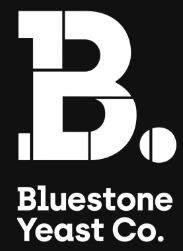
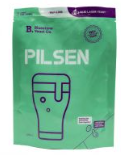


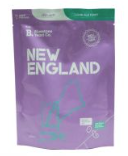

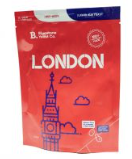
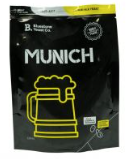
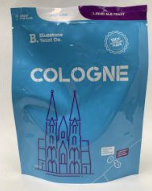

No comments:
Post a Comment